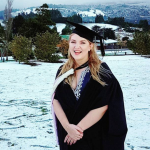PIs: Professor Jamin Halberstadt, Psychology and Associate Professor Jesse Bering, Psychology, University of Otago, New Zealand
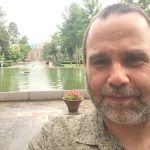
Jamin Halberstadt
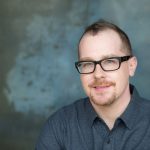
Jesse Bering

Victoria K. Alogna
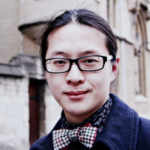
Jonathan Jong
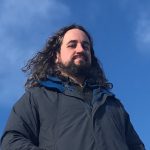
Evan Balkcom
Project team:
Professor Jamin Halberstadt, University of Otago, New Zealand (Co-Principal Investigator)
Associate Professor Jesse Bering, University of Otago, New Zealand (Co-Principal Investigator)
Victoria K. Alogna, University of Otago, New Zealand (Postdoctoral Researcher)
Evan Balkcom, University of Otago, New Zealand (PhD Researcher)
Samantha Smith, University of Otago, New Zealand (Master’s Student)
Dr Jonathan Jong, Coventry University and University of Oxford UK (Advisor)
Dates: 1 July 2017- 30 June 2019
Award: £119,491
Recent scientific interest in religion has tended to focus on the “puzzle of belief”: how people develop and maintain religious beliefs when such beliefs often entail high costs (for example, in terms of time and money) and return few quantifiable rewards. Some research suggests the answer is that humans are “predisposed” to become religious— biased toward thinking that “everything happens for a reason,” for example, or toward supernatural explanations over scientific ones. If people truly adopt supernatural beliefs by default, then the real puzzle is not why some people are religious, but rather why some people are not religious. Why and how do people reject their intuitions to become “unbelievers”?
Resolving this puzzle, we believe, is the key to understanding the nature of unbelief. The current project therefore examines how unbelief emerges (e.g., its origins in childhood, and the individual and situational variables that predict it in adulthood), and how it is sustained in the face of cognitive inclinations to believe. We will use longitudinal, correlational and experimental methods to investigate how unreligiosity develops and thrives in a world populated not only by difficult-to-explain events, but also by people who are eager to explain those events in supernatural terms.
The project consists of four parts. In Part I, we will use a unique longitudinal dataset, a 45-year study of a city-wide birth cohort (the famous Dunedin Multidisciplinary Health and Development Study) to test competing theories about the developmental origins of unbelief, as well as the relation of unbelief to naturally occurring emotional trauma. In Part II, we will explore, qualitatively and quantitatively, the challenges unbelievers face to their materialism, and how they maintain their skeptical worldview. Part III is a series of studies measuring the discrepancies between conscious and unconscious belief, and the implications of such discrepancies for well being. Finally, in Part IV, we will present all of our results in an international “Science Teller Festival” to be held in Dunedin, New Zealand, in October 2019. This will be a high-profile, live-streamed event promoting public discourse on the nature of unbelief, involving influential scientists working in this area alongside prominent atheistic and religious figures.
